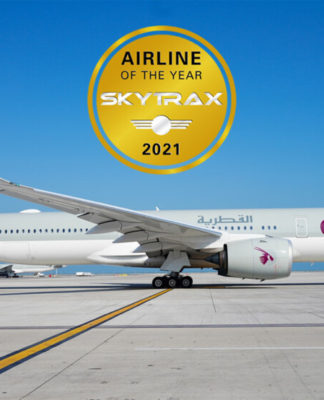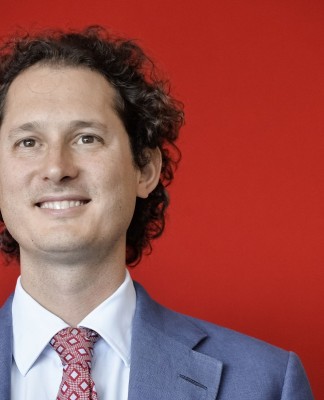Back to homepage / Europe
FAKE NEWS
Slovakia swamped by disinformation ahead of parliamentary elections
As Slovakia heads toward parliamentary elections on Saturday, the country has been flooded with disinformation, ranging from pro-Russian propaganda, lies about the situation in Ukraine and the spread of anti-migrant hate speech.
Issued on: 28/09/2023 – 18:43
4 min
Leader of SMER – SD party Robert Fico poses for a photo with a supporter before pre-election meeting of the party in Rimavska Sobota, Slovakia on August 15, 2023.
Leader of SMER – SD party Robert Fico poses for a photo with a supporter before pre-election meeting of the party in Rimavska Sobota, Slovakia on August 15, 2023. © Vladimir Simicek, AFP
By:
Grégoire SAUVAGE
Slovakia has been coming under a barrage of online disinformation. Days before the parliamentary elections of September 30 that could lead to closer relations between this country of 5.4 million people and Moscow, voters have been flooded with disinformation from home and abroad, especially Russia.
“The disinformation ecosystem in Slovakia … is reaching its zenith today” ahead of the vote, said Peter Duboczi, editor-in-chief at Infosecurity.sk, in an interview with AFP.
Reset, a London-based non-profit, said it had registered more than 365,000 election-related disinformation posts on Slovak social media in the first two weeks of September. The posts violating social media terms of service and containing disinformation had generated more than five times as much exposure as an average post, according to the non-profit.
Unrestrained public discourse
The biggest spreaders of disinformation by far are Slovak politicians themselves – rather than influencers, Russian trolls or conspiracy websites, said Peter Jancarik, co-founder of the Konspiratori.sk project, a public database of Czech and Slovak disinformation websites.
He said the biggest victory for disinformation websites is not having more online visitors or becoming more popular but seeing their rhetoric taken up by politicians in the public sphere. “For many Slovak politicians, disinformation has become an everyday communication tool.”
Former prime minister Robert Fico – a populist with pro-Russian leanings and a favourite in the polls, whose videos are among the most popular in Slovakia on Facebook, YouTube and Telegram – is a prime example.
“Robert Fico manipulates disinformation to such a degree that even the most intelligent, cultured and well-educated Slovaks find it hard to understand,” said Alain Soubigou, senior lecturer in contemporary Central European history at the Sorbonne.
Ahead of the election, Fico and the leader of the far-right Republika Milan Uhrik party have already warned voters of potential vote-rigging – a strategy also employed by Donald Trump in his failed re-election bid in 2020.
Much of the disinformation circulating in recent weeks also serves Russian interests. On the campaign trail, Fico has said the war in Ukraine “started in 2014 when Ukrainian Nazis and fascists started murdering Russian citizens in Donbas and Luhansk” in east Ukraine – repeating a false narrative used by Russia’s President Vladimir Putin to justify his invasion.
Along the same lines, Slovak National Party Chairman Andrej Danko said in July that Russian-occupied territories were not “historically Ukrainian”.
“These channels of Russian influence are not entirely new,” said Soubigou. “A large part of the political class was formed during the Communist era, and links have existed beyond the Velvet Revolution of 1989” in what was then Czechoslovakia.
A prime target for Moscow
Experts have been warning about the high risk of Russian interference in the elections for several months already. The European commissioner for the internal market, Thierry Breton, warned in April of a “hybrid war on social media”.
Former Slovak defence minister Jaroslav Nad has accused Russia of paying Slovak citizens to tilt the elections in favour of Fico’s Smer-SD party in May.
Since the illegal Russian annexation of Crimea in 2014, Slovakia has been a prime target of disinformation from Moscow, whose embassy in Slovakia is a well-known source of propaganda.
It is the most active of all Russian embassies in the world if you look at Facebook data, said Tomás Krissak, an analyst at Gerulata Technologies, a start-up specialising in hybrid threats. It also spreads a lot of disinformation and manipulative narratives, he added.
A video from March 2022 showing a deputy military attaché from the Russian embassy bribing a contributor to Slovakia’s largest disinformation website caused a huge public scandal. Bratislava waited a week and then announced the expulsion of 35 Russian diplomats in response.
Jancarik said the government’s reaction is “too late, too late”. “Disinformation at this scale is not something that occurred [only] in the election period,” he noted, while pointing out the numerous insufficient attempts at regulating disinformation and the shortfalls in responsibility from the platforms themselves.
And the pro-Kremlin propaganda appears to have taken root. According to an opinion poll conducted by Globsec, 51% of Slovaks believe Ukraine and the West were responsible for the Russian invasion.
Europe’s ‘weakest link’?
The Kremlin wants to leverage Slovakia’s struggles to extend its own influence and infiltrate public discourse in a country where distrust of the media and political parties is traditionally very high, said Jancarik. “People really feel that they are in the middle of chaos. They don’t know what the energy prices will be, we have huge inflation [and] we have a war next door,” he added.
“Slovak consumers directly suffered the consequences of the war in Ukraine. Russia was supplying 80% of our energy, and the decisions taken in Brussels hit Slovakia’s energy needs hard,” said Soubigou.
Slovakia is also facing an influx of migration from the south, a phenomenon that has fuelled hate speech from the extreme right. The country detected approximately 24,500 migrants who had entered illegally in the first eight months of the year – most of them from Serbia through Hungary.
“The Kremlin is probably looking at us as the next Hungary, so they are trying to have the Trojan horse inside the EU. We are obviously the weakest link [. . .] in the EU and NATO,” Jancarik said.
Daily newsletter
Receive essential international news every morning
Subscribe
Read more
Is Hungary Russia’s Trojan horse in Europe?
Yet closer relations between Bratislava and President Viktor Orban’s Hungary to the benefit of Russia are unlikely, even in the case of a Fico party victory. A Smer-SD victory in the elections would mean Fico becomes prime minister again, a position he has already held for 10 years
“Hungary is not as open a country as Slovakia, and it has not benefited from as much European investment. Furthermore, Hungary does not have the euro currency like Slovakia, so its economic policy is not as aligned to the one in Brussels.”
Soubigou went on to say that there are “antibodies” in Slovak civil society that don’t exist in Hungary. “Not all Slovaks are falling for this remote-controlled propaganda from Moscow,” he said.
This article has been translated from the original in French.





















![How to get a Qatar Family Residence Visa? [ Updated ]2022](https://welcomeqatar.com/wp-content/uploads/2022/04/maxresdefault-2-324x400.jpg)







